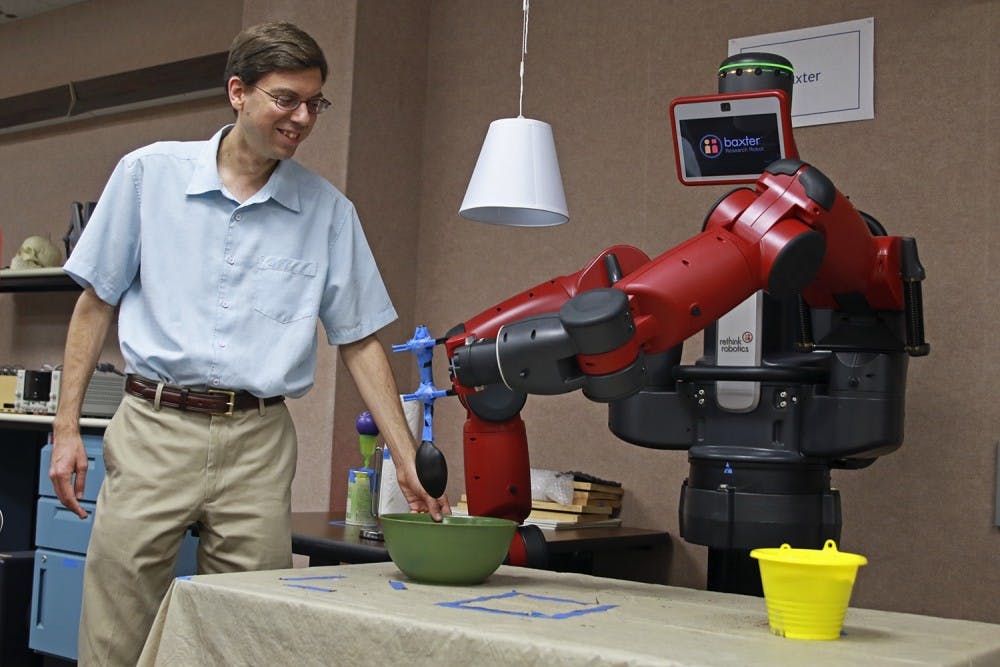Computer science professor Ron Alterovitz is using robots to solve problems in health care.
“Originally, I was interested in computer science and using computers and software to solve problems,” Alterovitz said. “I was very interested in medical and health care applications, and from there sort of working more on medical robotics.”
Alterovitz leads the Computational Robotics Group at UNC and his group is working on several robotics projects at the intersection of the medical and computation fields.
“Our work is focused on using computational methods and robotics for problems in health care,” Alterovitz said. “So, from there what we can do is develop robotic devices that can steer through the body and enable procedures that previously would have required a much more invasive surgery, to now be done in a much more minimally invasive fashion.”
The group buys the hardware for the robot as a blank slate and then writes algorithms that enable the robot to perform the desired tasks.
Alterovitz said his group is also developing algorithms to be used in personal robots, designed to assist the elderly and disabled in everyday activities. These robots will hopefully help people who want to remain in their homes.
“There’s a particular task that they can’t do and all the sudden they have to give up their home and move to an assisted living center or get a lot of hired help,” he said.
The Computational Robotics Group consists of students at all levels of study, including undergraduates and postgraduates. Armaan Sethi, a first-year computer science major, spent the summer working with Alterovitz.



